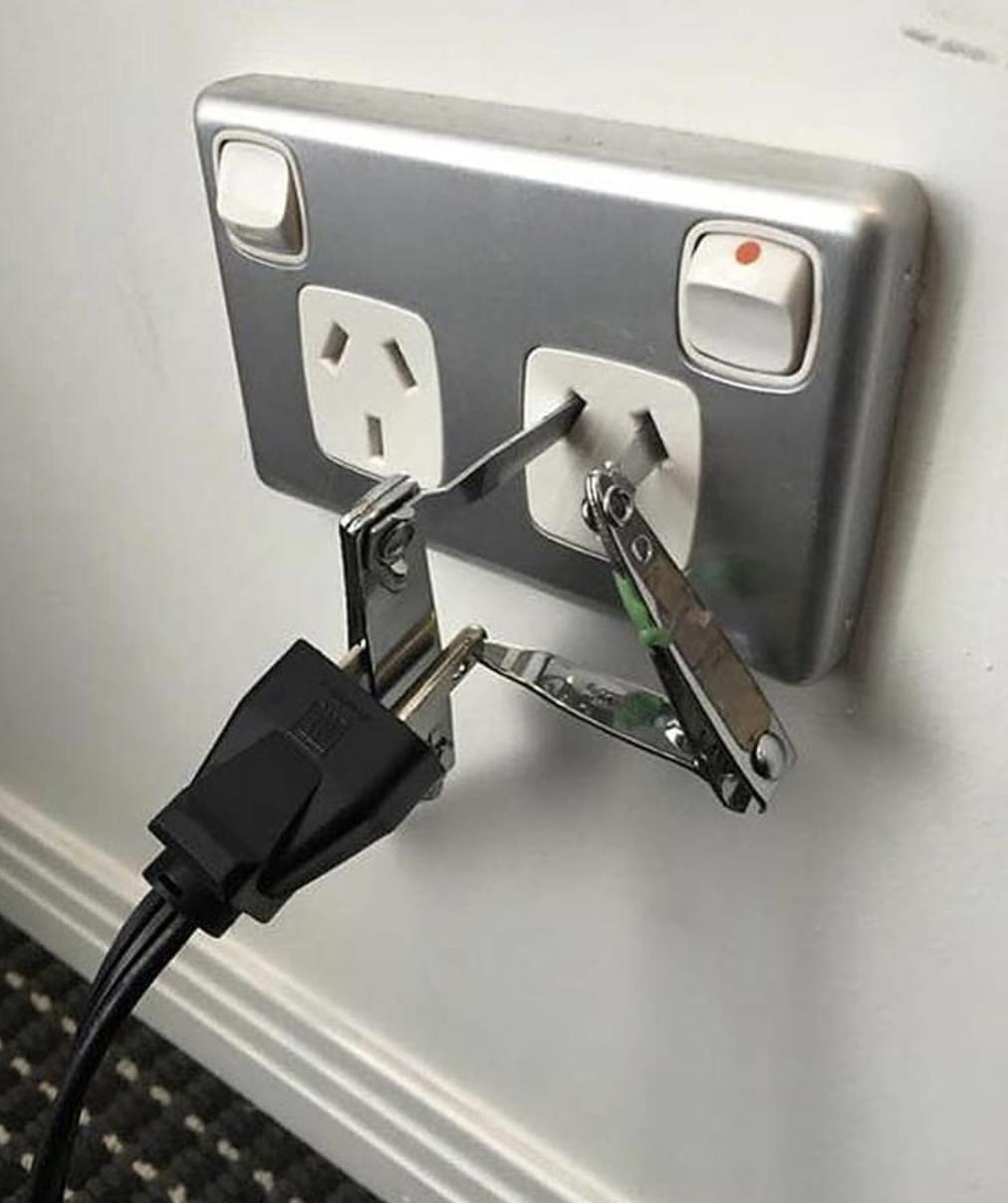Have you met babies? They are eating, pooping, suicide machines.
- 3 Posts
- 67 Comments

 10·9 months ago
10·9 months agoIn all fairness, due to the sheer size of Reddit the likelihood of a drunk expert-in-that-specific-thing that rejoices in oversharing their very specific knowledge is not 0%. Dude was desperate.
We know his perfect answer was probably buried 12 subcomments deep on a 6 year old hentai thread, though. Only written online as the result of said aforementioned expert butting into an argument about pillow exports or something. Out of reach. Forever lost to the vast expanse of the internet.
Anywho, sucks for that guy. He’s in prison now because his google search landed him in North Korea.

 6·9 months ago
6·9 months agoWe picked up a 12 year old civic hatchback before Covid for 5k and it was in immaculate like-new condition, low miles. It got totaled right after our other car’s engine finally wore out. I then found a 10 year old Toyota for 16k. It was the lowest price in a 200-mile radius for cars/small trucks with under 150k miles on them that weren’t limping/totaled/savaged.
It was fucking flabbergasting.

 25·9 months ago
25·9 months agoSome fish have little “hairs” on their body that are very similar to the “hairs” humans have in their ears to detect sound. As part of a trial to regrow damaged “hairs” in people with noise-induced hearing loss (soldiers, factory workers, etc), we had to uh, induce some damage so there was a test subject for the drugs. Turns out, tooth brush heads work really well for transmitting high-frequency waves through small volumes of water. Also turns out that I was not cut out for trials requiring living things. It was rough on the psyche.

 30·9 months ago
30·9 months agoI wouldn’t be surprised if the initial purveyor of poo was a researcher, because they are always hauling weird shit around. I was once asked why I was carrying around 40 toothbrushes and when I responded with “for fish stuff”, the looks only turned more confused. I can only imagine being a well-traveled researcher trying to return through customs with my latest batch of study materials.

 51·9 months ago
51·9 months agoI guessed I’ve missed that so far. Who?

 201·9 months ago
201·9 months agoAs opposed to what? Leaving people homeless so those greedy banks and landlords can’t get at their money? Yeah, that’ll show ‘em.
 3·9 months ago
3·9 months agoJust beware of changing interest rates. I banked with CIT for a while when interest rates were tanking pre-Covid and I watched my rates drop every month with no written notice (this is standard practice). Also take note that it may take a few more days to retrieve your money when compared to a local branch.
I finally gave up and moved my money “home” because their login and password updating processes were so cumbersome that I was constantly calling their help line and I became worried about my money getting trapped there.
If you don’t need the money for a while, maybe check out 6-12 month CDs.

 74·9 months ago
74·9 months agoI wonder if AI-assisted articles will eventually form a feedback loop where “slamming” becomes the only way to describe communication.
 17·9 months ago
17·9 months agoThe CPUC did not respond to NBC Bay Area’s request for comment but has previously said the proposal is meant to enhance solar consumer protections and would only apply to future customers.
I would be thrilled to hear the mental gymnastics used to get from “enhanced solar consumer protections” to “pay us for the energy you produced”.

 18·9 months ago
18·9 months agoA friendly reminder: dust off the fan blades before you switch directions. I forgot to do this last week and dumped dust all over my bedspread right as I was about to get under it.

 12·9 months ago
12·9 months agoI’m an industrial project engineer and I’ve always referred to it as Professional Cat Herding. I get handed a goal (replace some piping, fix a tank, build a new thing, etc) and I have to get the operators input on what they need to run the system easily, I need the maintenance people’s input to make it easier to work on, I need the process owner’s input to make it optimized for production. All of these inputs will change a hundred times as there are always multiple crews/groups with different priorities and a lot of them oppose each other.
Once I have the design in place, I need to wrangle a group of laborers, a crane operator, the scaffold builders, the painters, the electricians, the inspectors and the parts so everyone and everything shows up at the same time to the party. That means meetings to make sure they know what the goal is, training completed to get them on site, lead times on parts sorted out, etc.
When everyone and everything finally shows up it’s mostly just running around like a maniac to make sure work goes smoothly with no injuries or major setbacks by ensuring everyone is communicating well with/through me. Halfway through there will be an internal request to change some aspect of the job and it’ll be on me to weigh the pros and cons of modifying a project mid-way through. These requests are denied 90% of the time, the rest cost a fortune to implement.
So ultimately, what it takes to do a good job is communication, patience, and attention to detail. For larger jobs that interrupt production or maintenance, a well-timed delivery of breakfast burritos helps as well.

 24·9 months ago
24·9 months agoA tired dog is a happy dog. I would recommend a VERY long walk or a trip to the dog park when you get home from work. Being kenneled all day and night with a brief respite while you are home and awake will lead to some serious pent-up energy, especially in puppies. We have two large dogs we’ve had since puppies and avoided rampant destruction by having a long yard for them to play in, but it requires us to be out there with them playing fetch and running them silly every day when we get home and again before bed. If we don’t, they just sit around outside begging to come in because ultimately they want to be around us.

 8·9 months ago
8·9 months agoI haven’t combined them directly, but I have taken both Sertraline and bupropion at different stages in my life. I agree that Sertraline eventually takes a toll on your libido, smothering it like a wet blanket over a fire. I can also attest to some people having an increase in anxiety with bupropion because that shit made me want to claw my skin off. I always felt like I was seconds away from exploding while I was on it. It’s difficult to describe. I stopped taking it after a few weeks because it made me an edgy mess.
To overcome the lack of libido on Sertraline I just “practiced” by trying to initiate intimacy with my partner (or myself), even when I didn’t feel like it, because eventually I could “get in the mood” and it became easier over time after reminding my body that it was, in fact, fun to have sex. I also noticed increasing my activity level by working out a few times a week helped quite a bit with increasing my libido.
Eventually after changing jobs, finding a good workout regimen, and reducing my alcohol intake, I was able to get off the Sertraline and my libido came back after a few weeks.
That’s just my experience though, I wish you the best of luck.

 3·9 months ago
3·9 months agoMaybe my eyesight is going but it looks like bubble wrap to me.

 411·9 months ago
411·9 months agoAnd global warming, and economic policy, and generally accepted medical practices, and immigration, and religious rights, and gun violence, and and and
In fact I’m usually quite shocked when anything comes out of their caucus that can loosely be interpreted as the truth.

 13·9 months ago
13·9 months agoThank you for your service.

 41·9 months ago
41·9 months agohttps://eusci.org.uk/2020/04/09/why-do-humans-and-so-few-other-animals-have-periods/
Disclaimer: I can’t vouch for the factuality of any of it. It’s just the top search results.

 16·9 months ago
16·9 months agoWell now you made me go and google it. Some snippets from the top results:
Evolution. Most female mammals have an estrous cycle, yet only ten primate species, four bat species, the elephant shrew, and one known species of spiny mouse have a menstrual cycle. As these groups are not closely related, it is likely that four distinct evolutionary events have caused menstruation to arise.
Also:
To understand why menstruation evolved, we have to think of it as a by-product of spontaneous decidualisation. In most mammals, decidualisation – the thickening of the uterine wall – is controlled by the embryo: it occurs in response to fertilisation rather than in preparation for it. In menstruating species like humans, spontaneous decidualisation is one way the parent tries to wrest back dominance of their uterus from an increasingly invasive embryo. The uterine lining now responds only to the parent’s hormones rather than the embryo’s, and the parent controls whether or not they get pregnant. They put their defences up preemptively, by sealing off the main blood supply from the endometrium before the embryo implants there. Not content with this, the embryo evolved to burrow through the endometrium until it reaches the arteries, where it tears through the wall and rewires the blood vessels so that it can bathe directly in the parent’s blood. The (arguably) ungrateful parasite pumps out hormones to make the arteries expand around it, and paralyses them to prevent the parent from cutting off its supply. It produces more hormones, which act directly on the parent to maintain pregnancy and increase the availability of nutrients. The parent defends themselves as best they can: their endometrium fights against the embryo’s invasive proteins, their immune system attacks the invading cells, and their own hormones try to counteract those of the embryo. The tug-of-war rages on.
Well that’s just metal af.




deleted by creator